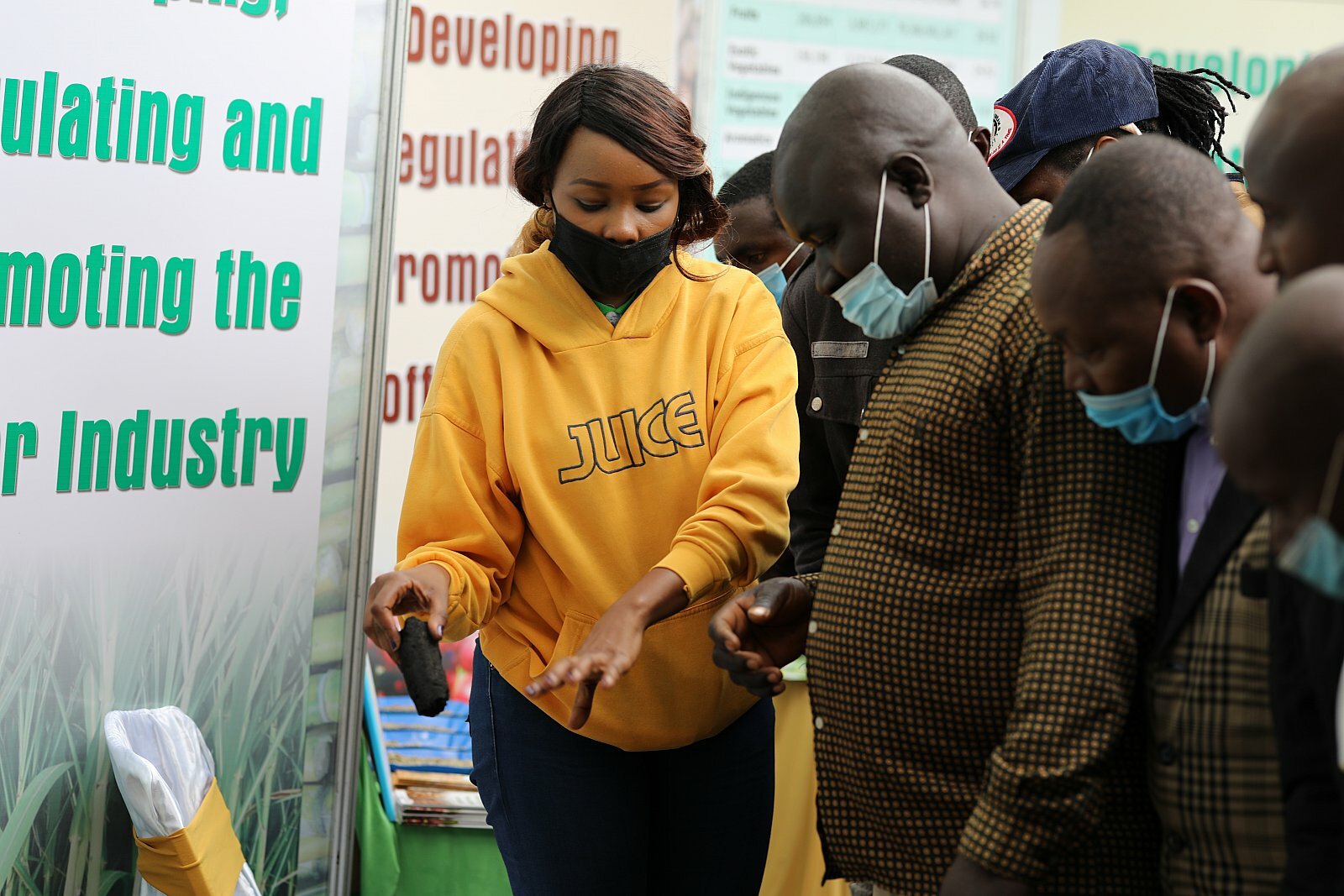
2021 Embu County Field Day (Courtesy)
When asked how much money he generates growing veggies on a quarter-acre plot of land, Martin Karani, a 31-year-old Embu farmer, claims that if he sells all of his crops in a good month, he can make Sh50,000.
Intensive Farming
He has meticulously organized a little plot of land in Kiringa, Embu East sub-county, to the point that it now grows spinach, sukuma wiki, tomatoes, cabbage, and capsicums.
Diversification, according to Karani, is a move away from reliance on popular crops such as maize, beans, coffee, and tea, which have not performed well in recent times.
“Some crops, such as kale and capsicums, have different growth spans, which helps me maintain constant output,” Karani explained.
He makes an average of Sh30,000 to Sh40,000 every month because not all of the crops are harvested at the same time.
Investment Returns
Karani, on the other hand, argues that he can easily make Sh50,000 if he sells every ripe crop on the farm.
“I would plead for time to sell all of the farm’s produce if I was asked to create Sh50,000 right away,” he continued.
He sells his wares in the markets of Runyenjes and Embu town.
Karani states that his life has been transformed by this style of farming since he can now feed his family and meet his commitments.
He has harvested more over a longer period than when he only planted corn or beans on his property.
Crops with different growth spans produce constant yields, making it easier to satisfy his growing customer base.
Diversification
He is one of Embu’s young farmers who is diversifying his crops to tackle food insecurity and growing unemployment.
County officials have long urged farmers to diversify their farming operations to secure the county’s long-term prosperity.
“Our most essential pillar is agriculture,” he remarked. “It is the bread that feeds the nation and provides us with foreign currency.”
It forms the backbone of the economy, accounting for approximately a quarter of total GDP.
According to research, the unemployment rate among young people is over 39%, thus they are encouraged to engage in agriculture to support themselves.
A Negative Attitude
The ability of rural adolescents to engage in successful agricultural and non-agricultural enterprises provides both social and economic benefits to the young and the economy.
Young people in developing and transition economies, on the other hand, have a negative view of agriculture.
“In large part, because they believe farming to be outdated and inefficient,” he continued, “young people are often disinterested in this line of work.”
Challenges
Kenyan young people are quitting small-scale farming at alarming rates due to a lack of education, a lack of money, and a negative attitude toward farming.
Banks sometimes reject farmers’ loan applications because they do not believe farming is a viable company or that land is a sufficient source of collateral. This adds to the perception that farming is an unpleasant occupation.
The Global Youth Business Incubator was created to help young entrepreneurs connect with investors, organizations, and supporters, as well as to solve the issue of credit availability.







